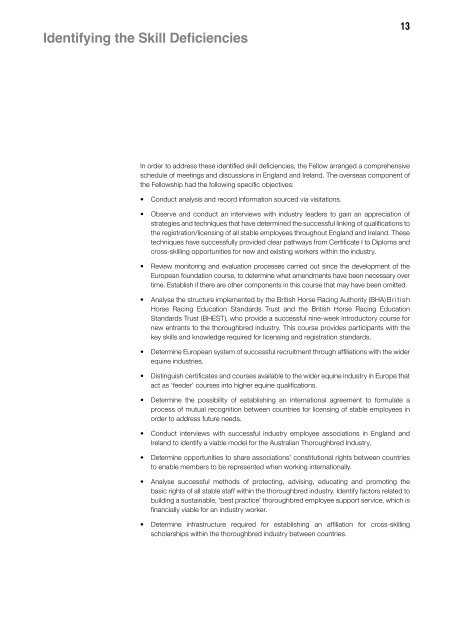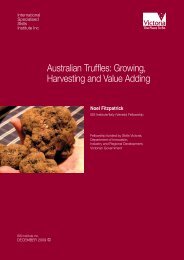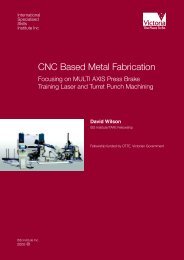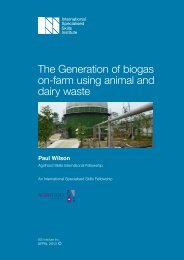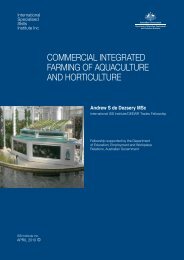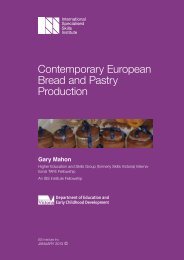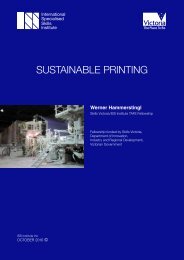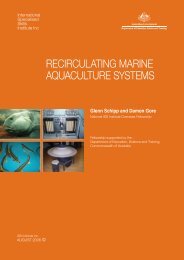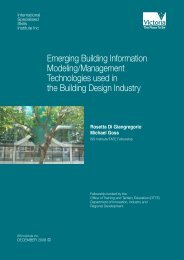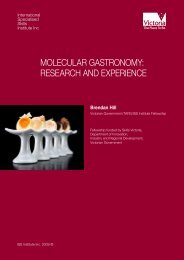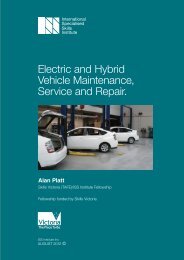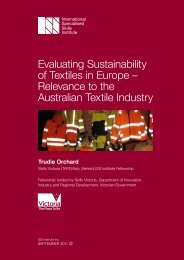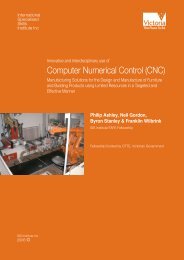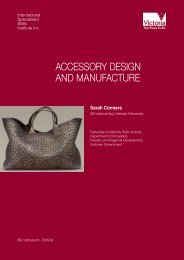the australian thoroughbred industry - International Specialised ...
the australian thoroughbred industry - International Specialised ...
the australian thoroughbred industry - International Specialised ...
Create successful ePaper yourself
Turn your PDF publications into a flip-book with our unique Google optimized e-Paper software.
Identifying <strong>the</strong> Skill Deficiencies<br />
13<br />
In order to address <strong>the</strong>se identified skill deficiencies, <strong>the</strong> Fellow arranged a comprehensive<br />
schedule of meetings and discussions in England and Ireland. The overseas component of<br />
<strong>the</strong> Fellowship had <strong>the</strong> following specific objectives:<br />
• Conduct analysis and record information sourced via visitations.<br />
• Observe and conduct an interviews with <strong>industry</strong> leaders to gain an appreciation of<br />
strategies and techniques that have determined <strong>the</strong> successful linking of qualifications to<br />
<strong>the</strong> registration/licensing of all stable employees throughout England and Ireland. These<br />
techniques have successfully provided clear pathways from Certificate I to Diploma and<br />
cross-skilling opportunities for new and existing workers within <strong>the</strong> <strong>industry</strong>.<br />
• Review monitoring and evaluation processes carried out since <strong>the</strong> development of <strong>the</strong><br />
European foundation course, to determine what amendments have been necessary over<br />
time. Establish if <strong>the</strong>re are o<strong>the</strong>r components in this course that may have been omitted.<br />
• Analyse <strong>the</strong> structure implemented by <strong>the</strong> British Horse Racing Authority (BHA) British<br />
Horse Racing Education Standards Trust and <strong>the</strong> British Horse Racing Education<br />
Standards Trust (BHEST), who provide a successful nine-week introductory course for<br />
new entrants to <strong>the</strong> <strong>thoroughbred</strong> <strong>industry</strong>. This course provides participants with <strong>the</strong><br />
key skills and knowledge required for licensing and registration standards.<br />
• Determine European system of successful recruitment through affiliations with <strong>the</strong> wider<br />
equine industries.<br />
• Distinguish certificates and courses available to <strong>the</strong> wider equine <strong>industry</strong> in Europe that<br />
act as ‘feeder’ courses into higher equine qualifications.<br />
• Determine <strong>the</strong> possibility of establishing an international agreement to formulate a<br />
process of mutual recognition between countries for licensing of stable employees in<br />
order to address future needs.<br />
• Conduct interviews with successful <strong>industry</strong> employee associations in England and<br />
Ireland to identify a viable model for <strong>the</strong> Australian Thoroughbred Industry.<br />
• Determine opportunities to share associations’ constitutional rights between countries<br />
to enable members to be represented when working internationally.<br />
• Analyse successful methods of protecting, advising, educating and promoting <strong>the</strong><br />
basic rights of all stable staff within <strong>the</strong> <strong>thoroughbred</strong> <strong>industry</strong>. Identify factors related to<br />
building a sustainable, ‘best practice’ <strong>thoroughbred</strong> employee support service, which is<br />
financially viable for an <strong>industry</strong> worker.<br />
• Determine infrastructure required for establishing an affiliation for cross-skilling<br />
scholarships within <strong>the</strong> <strong>thoroughbred</strong> <strong>industry</strong> between countries.


